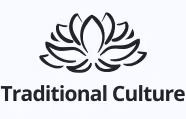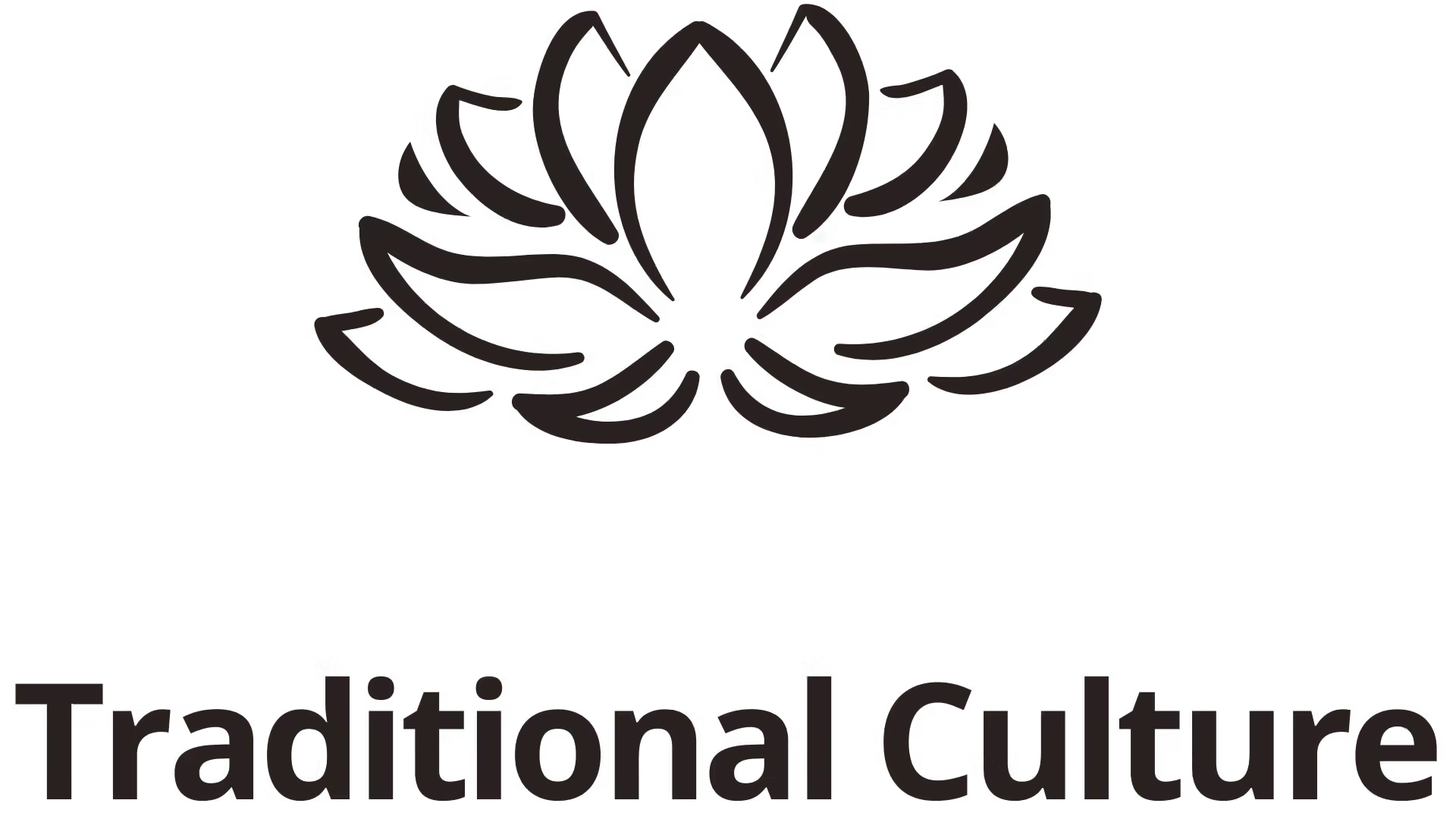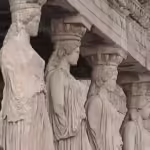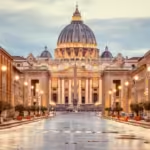The Roman Forum stands as a testament to the grandeur and complexity of ancient Rome, embodying the essence of Roman culture, politics, and social life. This historic site is not merely a collection of ruins; it is a vibrant narrative woven through time, revealing the intricacies of governance, religion, commerce, and daily life in one of history’s most influential civilizations. As visitors wander through its remnants, they are transported back to an era where power and fate intertwined, where decisions made here shaped the course of history.
The Historical Foundation and Cultural Significance of Roman Forum

As we delve into the origins and evolution of the Roman Forum, it becomes clear that this site was not merely a physical gathering place but a central hub that dictated the destiny of an empire. Established around the 7th century BC, the Forum served as a melting pot for traders, lawyers, and politicians, laying the groundwork for legal and economic systems that would influence countless generations.
The Early Days of Assembly and Governance

In its nascent stages, the Roman Forum was largely unadorned, a simple marketplace known as the “Forum.” It paved the way for social interactions, allowing merchants to sell goods while citizens debated issues of the day. This initial setup can be likened to modern social media networks, where ideas and information flow freely among people seeking connection and understanding.
The political dynamics within the Roman Forum were equally significant. Here, critical decisions were made, alliances forged, and policies implemented. The Forum quickly transformed into a vital arena for political discourse, echoing the voices of those who sought to make their mark on the world. Imagine the gatherings that took place — powerful figures standing at the center, passionately advocating for their causes, their words reverberating off the ancient stones, shaping the very fabric of society.
The Rise of Iconic Structures
Over time, the Roman Forum evolved with the construction of magnificent temples, basilicas, and monuments. Each structure added layers of meaning to the space, transforming it into a symbol of Roman architectural genius. Temples dedicated to gods like Vesta and Saturnus showcased both religious devotion and artistic innovation, marking the Forum as a cultural epicenter.
As one navigates through these historical sites today, it’s easy to draw parallels between the majestic architecture of the Roman Forum and contemporary cities that build iconic structures to define their cultural identities. These relics tell stories of glory, resilience, and artistry, illuminating the relationship between society and its environment.
The Social Fabric Woven Through Time

The Roman Forum was more than just a physical setting for commerce and politics; it was a cultural hub where art, philosophy, and social interaction flourished. Festivals, public speeches, and trials created a tapestry of experiences that defined Roman life. The vibrancy and energy of the Forum were palpable, with citizens engaging in spirited discussions and exchanging ideas that challenged norms and inspired change.
This cultural dynamism resonates with today’s globalized society, where diverse voices converge through various platforms. The Roman Forum reminds us of the importance of dialogue and engagement in shaping collective identities, making it a timeless model for understanding the role of public spaces in fostering community spirit.
Architectural Wonders and Heritage of Roman Forum
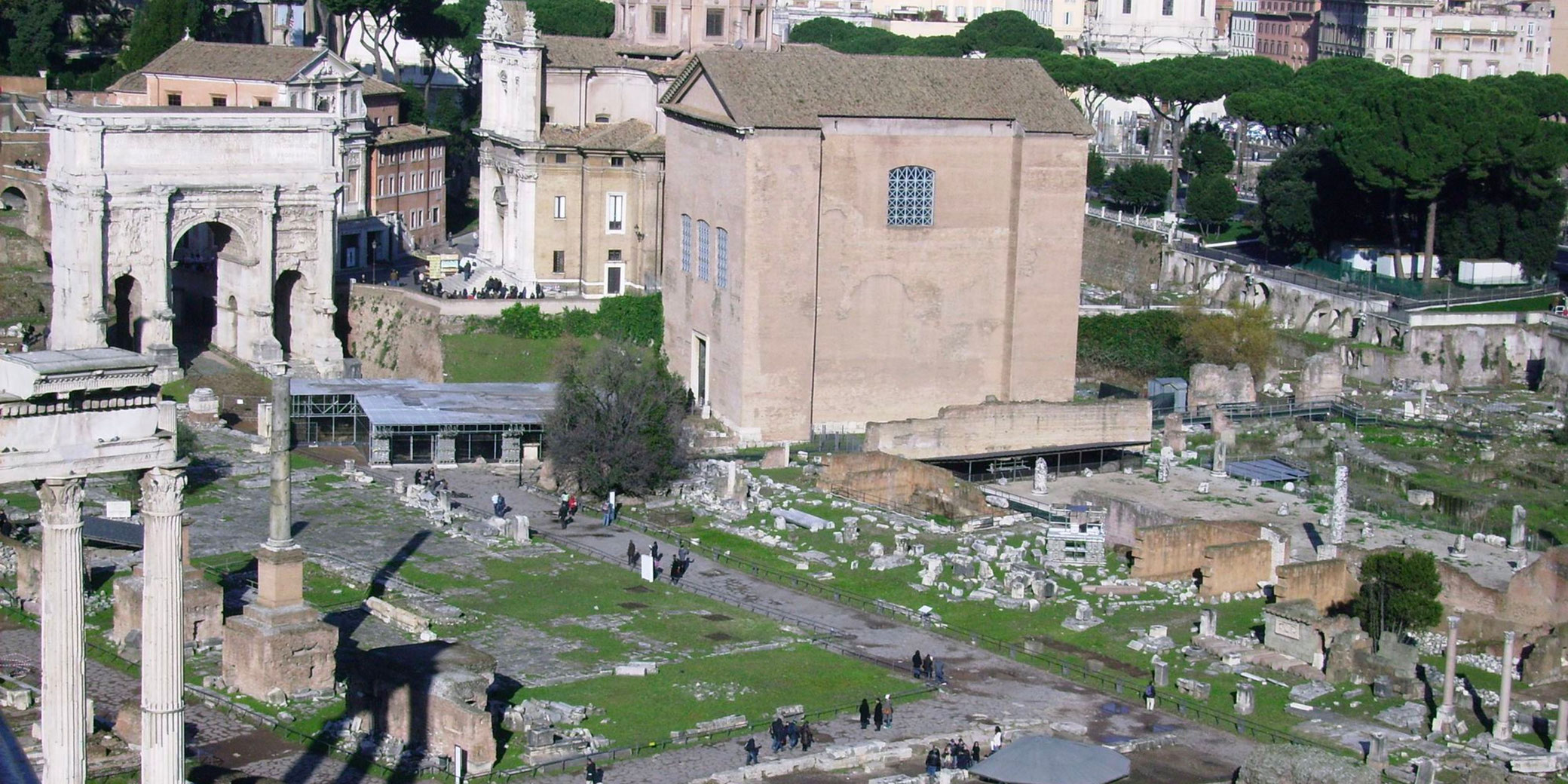
The architectural landscape of the Roman Forum is nothing short of breathtaking, showcasing the ingenuity of Roman engineering and design. Each edifice stands as a monumental testament to the civilization’s aspirations, beliefs, and values.
Temples: Sanctuaries of Faith and Artistry

At the heart of the Roman Forum, magnificent temples like the Temple of Vesta and the Temple of Saturn rise majestically, capturing the essence of Roman spirituality. These sacred spaces were not only places of worship but also architectural marvels that reflected the artistic prowess of the time.
The Temple of Vesta, dedicated to the goddess of the hearth, holds significance beyond its structural beauty. It embodied the sanctity of home and family, resonating deeply with Roman social values. Visitors today can appreciate how such temples fostered a sense of community, serving as both spiritual and social centers.
On the other hand, the Temple of Saturn represented wealth and abundance, mirroring the economic ambitions of the Romans. Its existence prompted celebrations that drew citizens together, reinforcing communal bonds. In analyzing these structures, one can see how architecture transcends mere function, becoming a repository of cultural memory and collective identity.
Basilicas: Hubs of Justice and Commerce
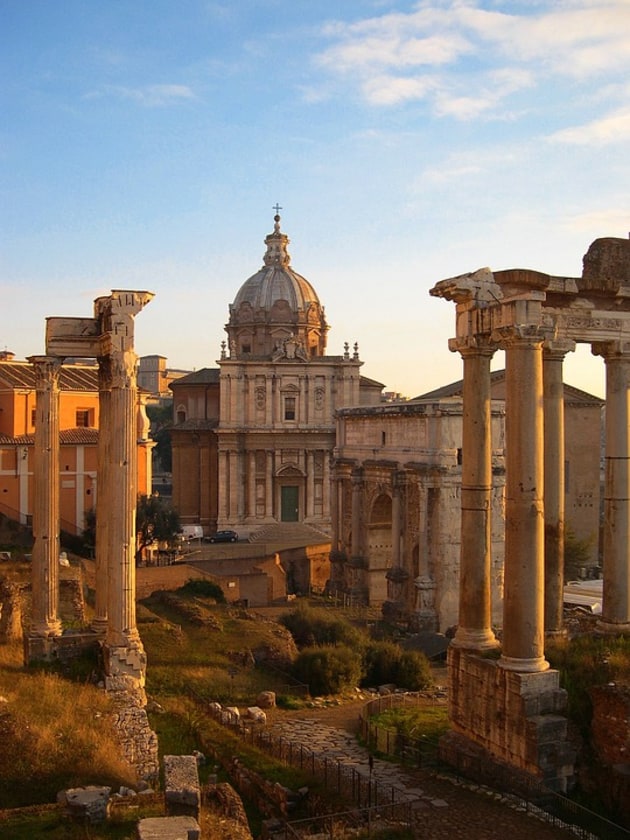
The Roman Forum also housed basilicas, which played crucial roles in the administration of justice and the conduct of trade. The Basilica Julia and the Basilica Aemilia were bustling centers where legal matters were addressed, and commercial transactions occurred. They served as the beating heart of the Forum’s civic life, embodying the interplay between law and commerce.
Today, these basilicas offer insights into societal structures and values. They remind us of the importance of having designated spaces for governance and economic activity, much like modern-day courthouses and marketplaces. Their remains evoke reflections on how laws and trade practices have evolved over time, yet the core principles of justice and commerce remain fundamental to civilized societies.
The Ruins: Echoes of a Once Thriving Society
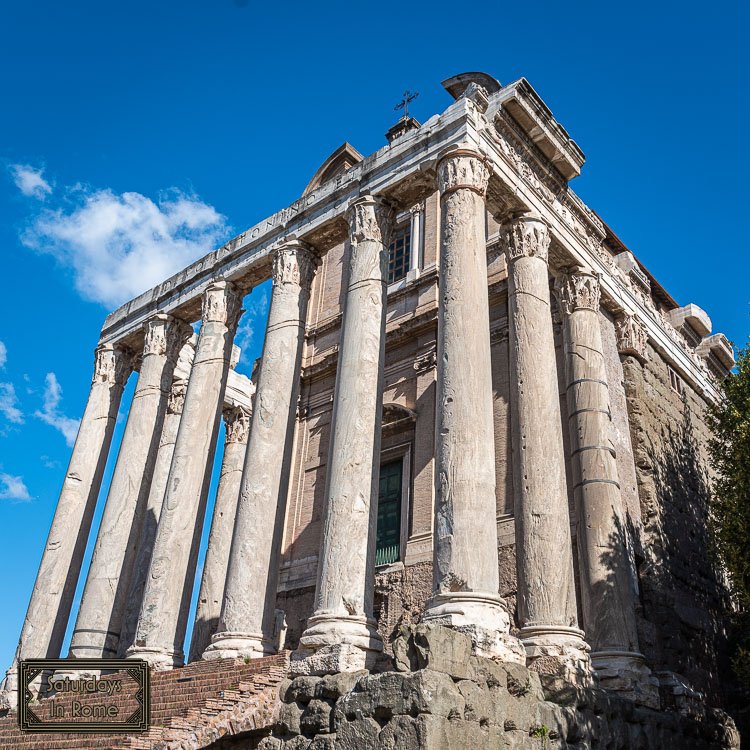
Walking through the Roman Forum, one cannot help but feel the weight of history pressing down. The ruins, though weathered by time, encapsulate stories of triumph and tragedy. Each stone bears witness to debates, ceremonies, and the daily lives of countless individuals who once inhabited this space.
As we gaze upon these remnants, we confront our own existential questions about legacy, memory, and time. The decay of these structures serves as a poignant reminder of impermanence, challenging us to consider what we value and how we wish to be remembered. The Roman Forum stands as a metaphor for the human experience — both fragile and resilient, marked by moments of brilliance and despair.
Historical Encounters within Roman Forum
The Roman Forum has been a stage for countless historical encounters, where debates and dialogues unfolded amid competing ideologies and aspirations. Each corner of the Forum tells tales of struggle, resilience, and the pursuit of democracy, leading us to reflect on the lessons learned from the past.
The Political Arena of Ideas

What transpired within the Roman Forum was not just a series of events but a complex interplay of power dynamics and ideologies. The forum was a battleground for political rhetoric, with leaders using persuasive speeches to sway public opinion. The echoes of these discourses resonate even today, prompting us to consider the impact of oratory skill and persuasive communication in shaping societal views.
Imagine witnessing Julius Caesar stand before the masses, articulating his vision for Rome amidst fervent applause and dissent. Such moments raise profound questions about the nature of leadership and accountability. Were these leaders champions of the people or self-serving tyrants? Engaging with these narratives encourages us to reflect critically on the ethical dimensions of power and governance.
Trials and Tribulations of Justice

The Roman Forum was not only a venue for political debates but also a site of legal proceedings. High-stakes trials took place here, determining the fates of individuals accused of various crimes. The dramatic tension of these moments often captivated the public, underscoring the intersection between law, morality, and societal norms.
Consider the implications of public trials in shaping perceptions of justice. The theatricality surrounding such events illuminates the complexities of human behavior and the societal appetite for spectacle. The Roman Forum serves as a poignant reminder of the need for transparency, fairness, and accountability in legal systems, urging us to uphold these values in contemporary society.
Reflections on Democracy and Citizenship
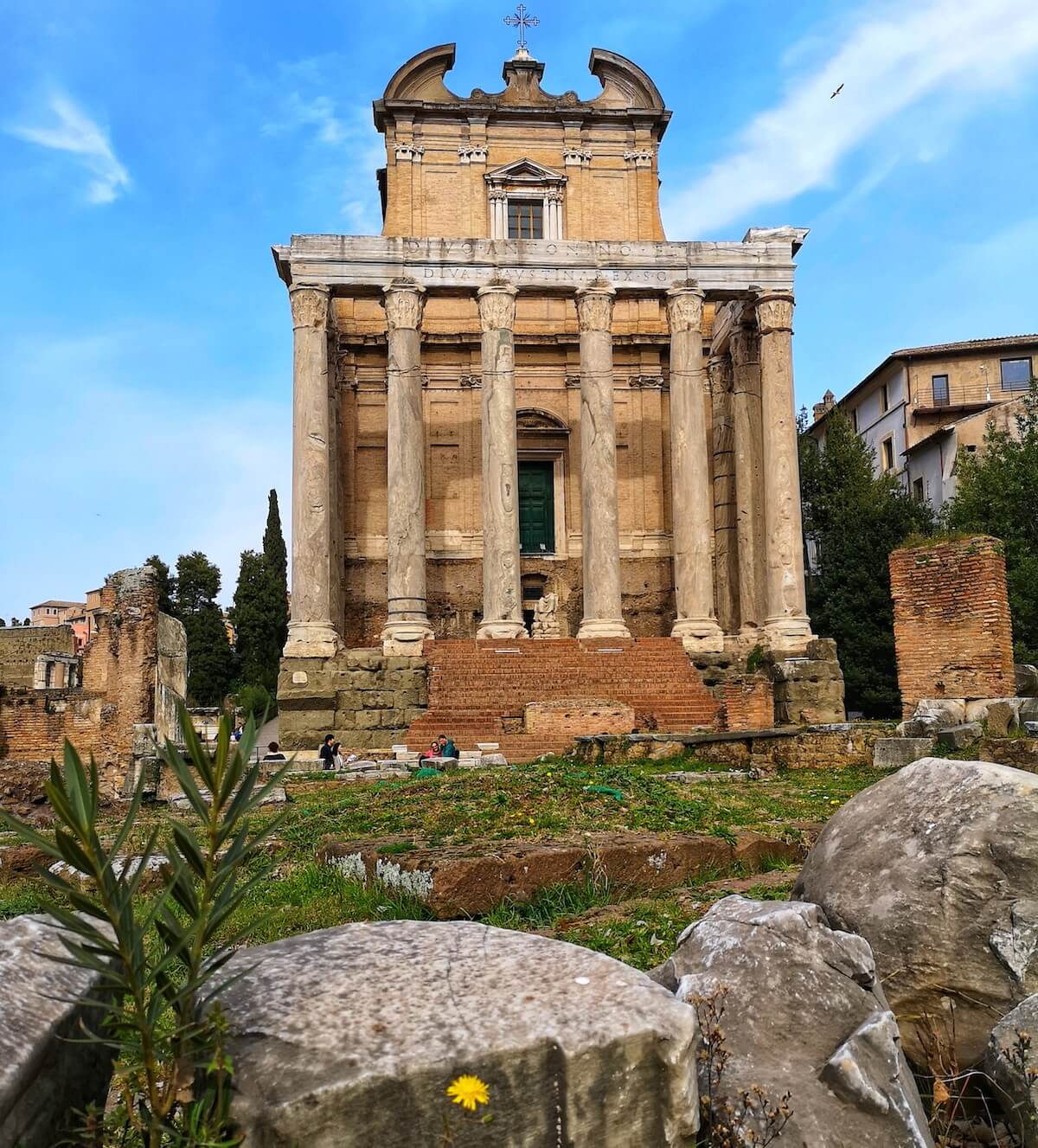
Within the walls of the Roman Forum, discussions on democracy and citizenship flourished. Citizens engaged in spirited debates about their rights, responsibilities, and the ideals of governance. The Forum became a crucible for democratic principles, where the voices of the populace mattered.
As modern societies grapple with issues of representation and civic engagement, the legacy of the Roman Forum offers valuable insights. It compels us to contemplate our roles as active participants in democracy, challenging us to engage meaningfully with the systems that govern our lives. The Forum serves as a call to action, inspiring us to nurture democratic ideals and foster inclusive dialogue.
The Future of Roman Forum and Cultural Heritage
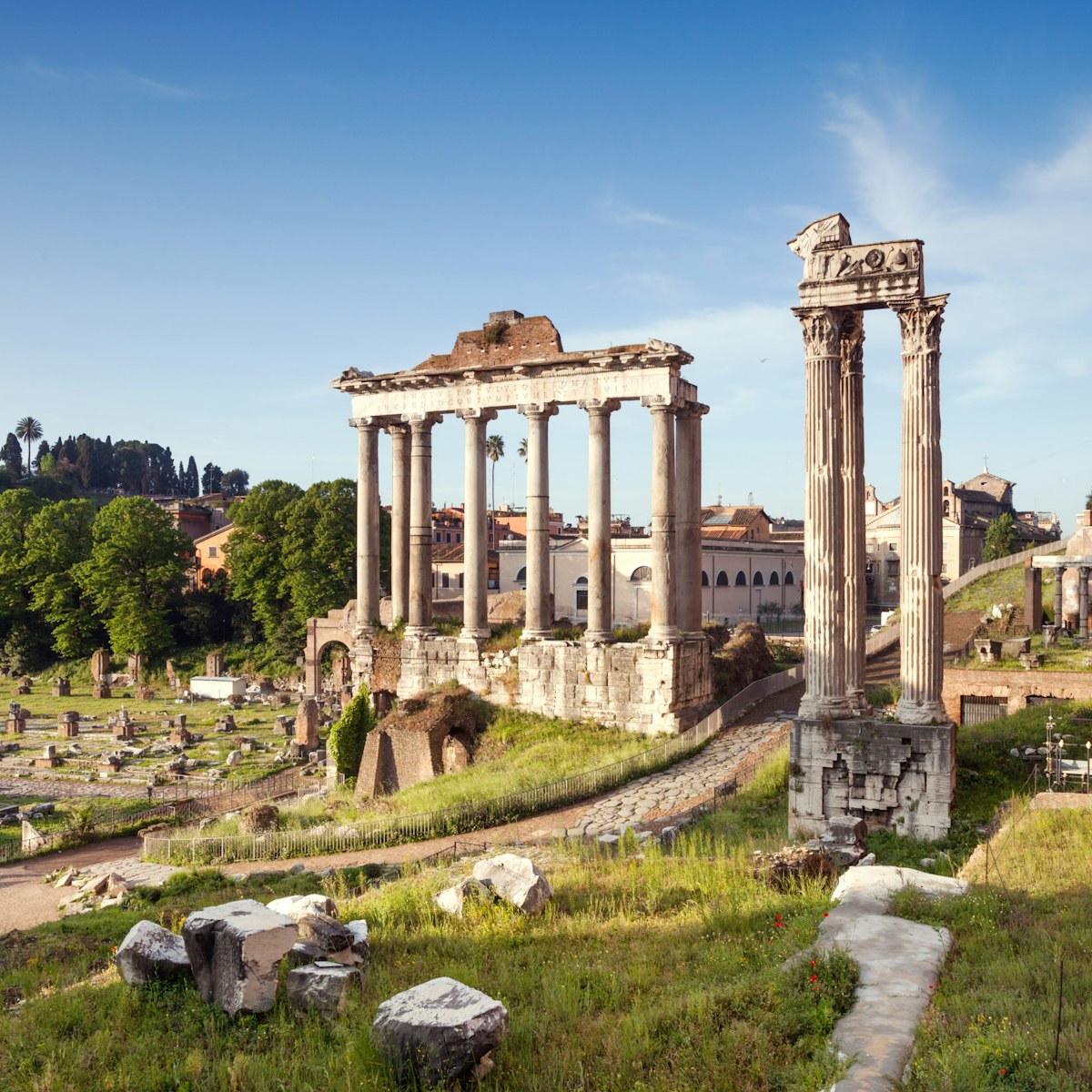
With advancements in technology and a growing awareness of preserving cultural heritage, the Roman Forum faces a dual challenge — to maintain its historical significance while reviving its memories for future generations. The management and conservation of this area involve more than physical restoration; it requires a commitment to nurturing its cultural essence.
The Role of Technology in Preservation
In the digital age, the Roman Forum benefits from innovative technologies that enhance visitor experiences and promote engagement. Virtual reality tours and interactive exhibits allow audiences to immerse themselves in the rich history of the Forum, bridging the gap between past and present.
These technological advancements not only preserve knowledge but also ignite curiosity about ancient civilizations. By harnessing the power of technology, we can inspire younger generations to explore and appreciate the cultural legacies of the past, encouraging them to become stewards of heritage.
Revitalizing Memories through Community Engagement

Community involvement plays a vital role in preserving the Roman Forum and its significance. Initiatives that encourage local residents and visitors to participate in preservation efforts foster a sense of shared ownership and pride in cultural heritage.
Imagine workshops where artists and historians collaborate to create installations that pay homage to the Forum’s history. Such endeavors not only breathe new life into the site but also facilitate dialogues between generations. The Roman Forum can serve as a catalyst for artistic expression, uniting diverse voices in a celebration of shared heritage.
Education as a Pathway to Understanding

Education is integral to the future of the Roman Forum. By incorporating its history into curricula, educators can cultivate an appreciation for ancient cultures, instilling a sense of responsibility toward cultural preservation.
Field trips, lectures, and interactive classes can transform students’ perceptions of history, connecting them with the broader narrative of humanity. The Roman Forum represents an opportunity for learners to engage with the past, fostering critical thinking skills and a deeper understanding of societal development.
Conclusion
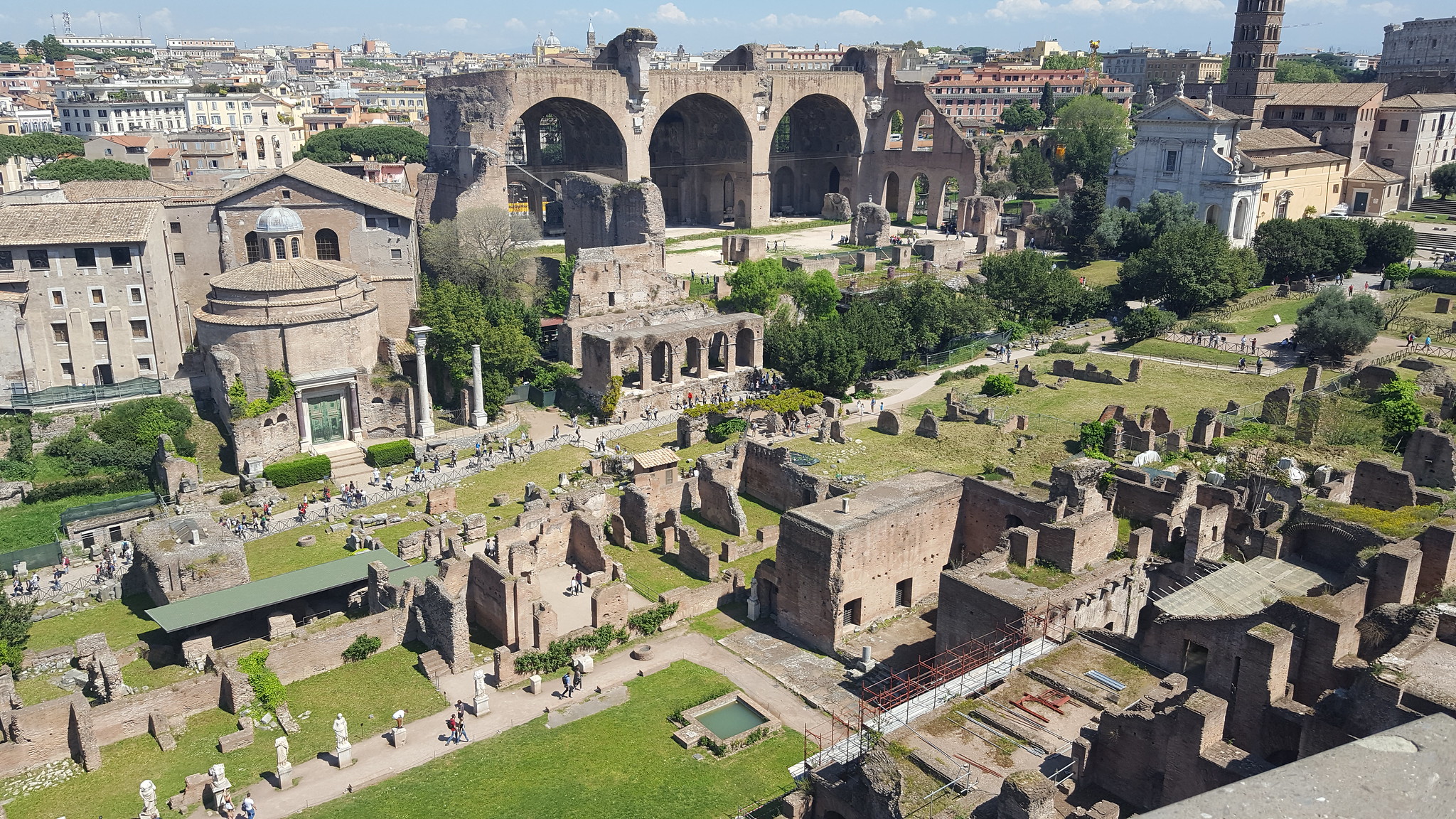
The Roman Forum remains an enduring symbol of ancient Rome’s cultural and political legacy, inviting us to reflect on the interconnectedness of history, society, and individual agency. Its ruins, once alive with the sounds of debate and celebration, now serve as a powerful reminder of our shared humanity and the values we hold dear.
As we navigate the complexities of contemporary life, the lessons drawn from the Roman Forum urge us to embrace dialogue, nurture our cultural heritage, and remain vigilant in safeguarding democratic ideals. In honoring the legacy of the Forum, we honor the tapestry of human experience, celebrating the triumphs and challenges that define who we are.
Let the Roman Forum inspire us to forge connections across time and space, reminding us that our stories are intricately woven into the greater narrative of civilization itself.
✉️ Stay Connected — Subscribe for Weekly Updates
Discover timeless stories, practical wisdom, and beautiful culture — delivered straight to your inbox.
*We only share valuable insights — no spam, ever.

